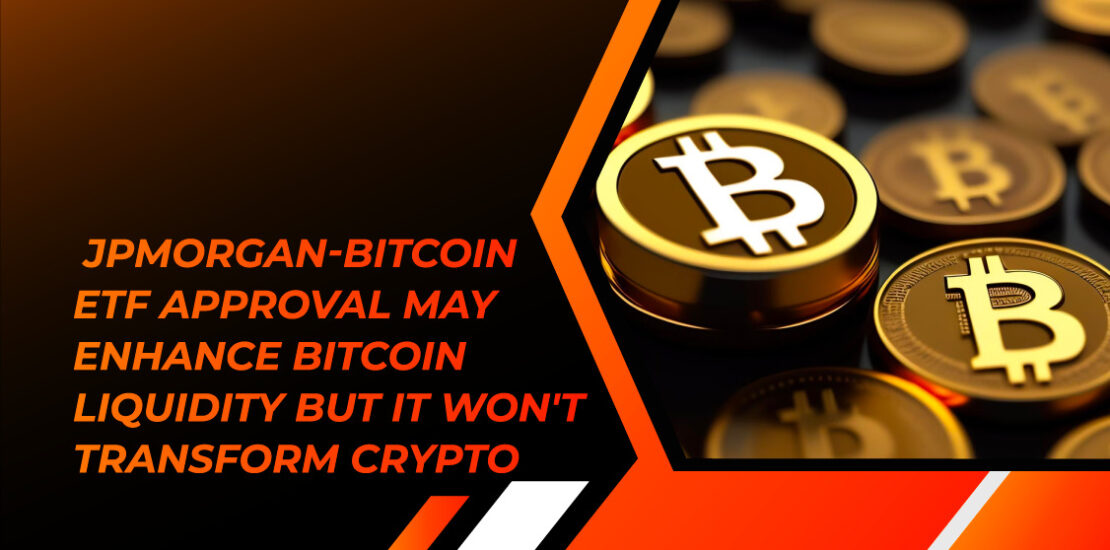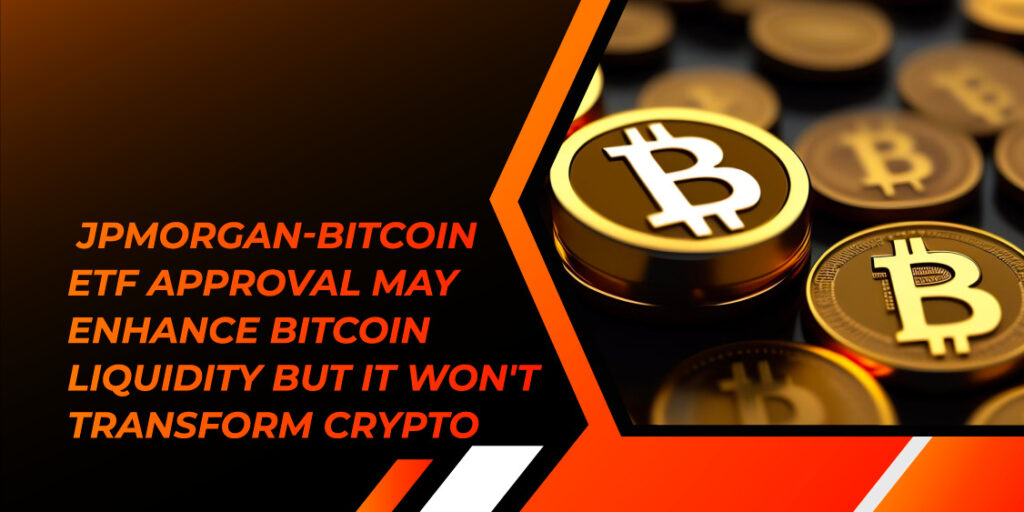- July 10, 2023
- Posted by: [email protected]
- Category:


In a recent report, JPMorgan stated that the approval of a spot Bitcoin exchange-traded fund (ETF) would not be a game changer for the crypto markets, although it could provide certain benefits to the leading cryptocurrency. According to the analysis, which was written by Nikolaos Panigirtzoglou, Managing Director at JPMorgan’s global market strategy team, a Bitcoin ETF in the United States would most likely have the same impact as its counterparts in Canada and Europe, where such ETFs are already available.
While Bitcoin ETFs in other jurisdictions have been around for a considerable period, they have not attracted significant investor interest, failing to capitalize on outflows from gold ETFs over the past two years. The report highlights that the historical data shows these ETFs have generally “attracted little investor interest” and have not experienced the expected benefits from gold ETF outflows.
Panigirtzoglou does acknowledge potential benefits if a Bitcoin ETF is approved in the United States. One of the primary advantages would be increased liquidity in Bitcoin markets. However, he also notes that there could be a migration of trading activity from Bitcoin futures products to the ETF. This perspective diverges from the high expectations surrounding a potential Bitcoin ETF approval in the United States.
In contrast to JPMorgan’s more measured stance, Larry Fink, CEO of BlackRock, expressed optimism about Bitcoin’s role as an inflation hedge and alternative asset. Fink emphasized that Bitcoin is an international asset, not tied to any specific currency, which makes it an attractive option for investors seeking alternatives amid inflation concerns. With the annual inflation rate in the U.S. reaching 4.0% for the 12 months ending in May, Fink’s remarks resonated with those looking to diversify their portfolios.
BlackRock’s track record of successful ETF launches has fueled optimism regarding their potential Bitcoin ETF. Bloomberg Intelligence data from Eric Balchunas and James Seyffart indicate that out of 550 funds filed by the company, only one has been rejected thus far. Following BlackRock’s application, other major players such as Invesco, Fidelity, WisdomTree, and ARK Invest have submitted applications or refilings to the Securities and Exchange Commission (SEC) in hopes of obtaining regulatory approval. Nevertheless, it’s worth noting that the SEC has previously denied several Bitcoin ETF applications.
While the JPMorgan report suggests that a Bitcoin ETF approval in the United States may not be a game changer, it does acknowledge the potential benefits of increased liquidity. The divergence of opinions highlights the ongoing debate surrounding the impact and significance of a Bitcoin ETF, adding to the anticipation and uncertainty surrounding its potential approval.



